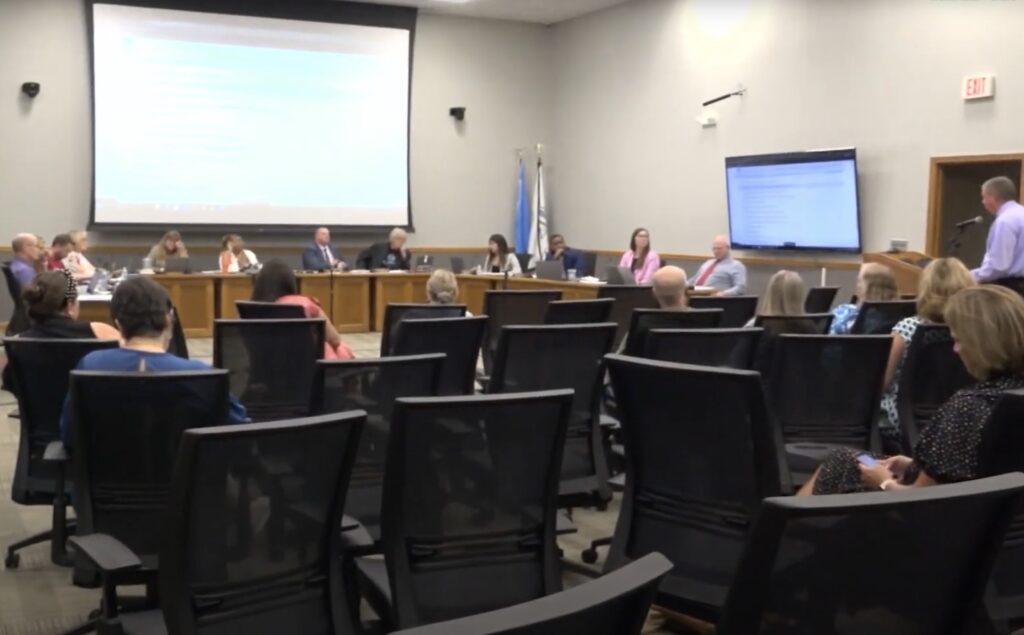‘Putting the cart before the horse’: Missouri school board approves misleading bond proposal
A Missouri school board is moving forward with a multi-million dollar bond, despite not knowing how the taxpayer dollars will be spent.
The St. Joseph Board of Education voted 6-1 Dec. 18 in…

A Missouri school board is moving forward with a multi-million dollar bond, despite not knowing how the taxpayer dollars will be spent.
The St. Joseph Board of Education voted 6-1 Dec. 18 in favor of the move, even though the amount and purpose of the funding is still to be determined.
The single dissenting vote came from board member Whitney Lanning.
“I can’t ask people to continue to give us their tax dollars when we’re not even really sure what we’re going to put on,” Lanning said. “I think, our plan, it feels rushed. And we’re talking about millions of dollars of taxpayers’ money.”
Local media reported that the bond amount could range from $20 million to $80 million without technically increasing property taxes.
But even though it’s billed as a “no-tax-increase,” the voters still pay for it one way or another.
“If you’re issuing more bonds that have to be paid off with tax dollars, of course it’s a tax increase,” David Stokes, director of municipal policy at the Show-Me Institute, told The Lion.
“I don’t think taxing districts generally should hide from voters,” Stokes continued. “[Districts should] say, ‘Look we’re going to spend more but you’re going to get these services for it, and these are the choices you have to make.’ So the no-tax-increase aspect always bugs me a little bit.”
In order for the bond to be fully approved, the board will need voters to approve it in an election this year.
Although the board hasn’t decided what the potential bond would pay for, ideas include upgrading athletic or fine arts facilities, safety improvements or installing air conditioning. The money can’t go to recurring expenses – such as teacher salaries – without constituting a tax increase.
“It’s certainly odd that they’re putting the money out there before telling people what they’re really going to spend it on,” Stokes told The Lion. “I would hope voters would demand, as it gets closer to the actual vote, far more information on what the intents for the money are going to be.
“If there isn’t, voters should be highly troubled by that.”
Voters may want to know not only what the bond is for and what the face-value is, but also what the interest rates will be and the bond’s duration, since all those factors will affect how much extra taxes St. Joseph residents end up paying.
However, it seems like the district’s leadership is spending money simply for the sake of spending.
At the Dec. 18 meeting, Superintendent Gabe Edgar told the board that if they don’t propose a bond in either April or August, they would “lose approximately $40 million of no-tax-increase bonding capacity.”
It seems backwards, according to Stokes.
“It did definitely strike me that this was putting the cart before the horse,” Stokes concluded.



